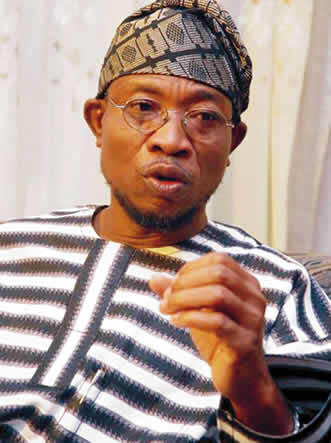 A nanotechnologist, Prof. Olusoji Oyewole, said on Saturday that the weighted average per capita daily calorie intake for Africans is between 1,100 calories and 1,700 calories.
A nanotechnologist, Prof. Olusoji Oyewole, said on Saturday that the weighted average per capita daily calorie intake for Africans is between 1,100 calories and 1,700 calories.
Oyewole, who is the Chief Executive Officer of Nanotechnology Industries and Agric. Support Systems Ltd, made the statement in a lecture titled, ”National Food Security Question”, he delivered at the AGRIKEXPO 2013 held in Lagos.
He said that this figure was below the recommended average of 3,000 calories for an active male between 19 and 50 years.
He said that Africa had the lowest per capita daily calorie intake, adding that statistics revealed hidden, clinical and latent hunger on the African continent.
Oyewole said that the per capita daily calorie intake for Africa was critical, lagging and below the red line when compared with those of other continents, such as Europe and North America, which stood at between 3,000 calories and 3,600 calories.
He said the figure for Australia was the same as Europe and North America; while Asia’s ranged from 1,300 calories to 2,000 calories.
Oyewole also said that Latin America’s intake was between 1,300 calories and 2,100 calories, while Oceania was between 1, 300 calories and 1,900 calories.
”The normal daily requirement should contain 60 per cent to 65 per cent carbohydrates, 15 per cent proteins and 25 per cent to 30 per cent fats and lipids, totaling 10 per cent of the body weight.
”That 80 per cent of Nigerians suffer from `hidden’ hunger shows that we are zero on the scale 10 to getting to ‘El Dorado’.
”That 30 per cent of Nigerians suffer from severe and absolute hunger is an indication that Nigeria might still be tossed around in global politics and be at the mercy of other nations,” Oyewole said.
He said it was sad that Nigeria lost over 50 per cent of vegetables and fish, 40 per cent of tubers and roots and 35 per cent of grain on the farm and in transit.
Oyewole said the figures indicated that the nation’s value chains were far from being established.
He said statistics by the International Food Production Research Institute (IFPRI) for 2012 showed that six per cent of the nation’s population was undernourished.
Oyewole said that the statistics also showed that 27 per cent of Nigerian children were undernourished.
He advised that government should embark on a ”protein for all, crash programme” with emphasis on plant alternatives as a solution to the challenge of food security.
The nanotechnologist said that long established facts had revealed that one hectare of soya beans would fulfil the protein needs/ration of a person for 18 months and the same quantity fed to a cow would last for 15 days.
He said it was time for the government to match words with action and tackle the issue of agricultural productivity for food security.
Also, Dr Sotonye Anga, the Coordinator of the Community of Agricultural Stakeholders of Nigeria (CASON), a Non-Governmental Organisation, said that the success of Nigeria’s agriculture depended on incentives given to agri-businesses and people.
Anga, who delivered a lecture titled, ”Positioning Nigeria as a Global Powerhouse in Agriculture”, said that the next generation of millionaires and billionaires in Nigeria would be ”agri-preneurs”.
He said that Nigeria was on the right path with the Agriculture Transformation Agenda (ATA), aimed at adding 20 million tonnes of food to domestic food supply.
He said the President Goodluck Jonathan administration’s ATA would also create 3.5 million jobs by year 2015.
Anga listed some of the ways of positioning Nigeria in agriculture, including a shift in government policy to favour agriculture.
According to him, triggering massive youth involvement in agriculture is also a way of transforming Nigeria’s agriculture.





















